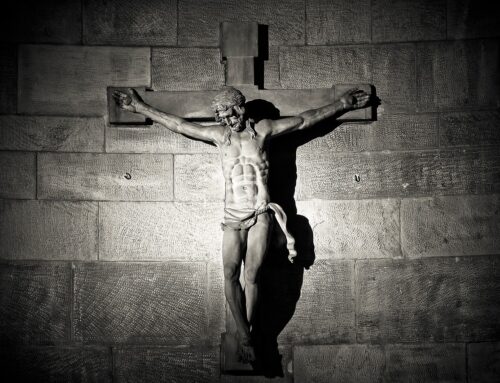Today (July 4) Americans celebrate our Declaration of Independence from “British tyranny” (as it was then perceived.) It was primarily a declaration of economic and political independence (a reaction against “taxation without representation.”) My thoughts today, however, turn to the “religious freedom” our ancestors sought in the new land. I am particular interested in those “founding fathers” who signed the Declaration of Independence 243 years ago today. Were they seeking “freedom from religion” or “freedom for religion”? And if it was “for religion,” what was the nature of this religion?
While modern atheists may find a few examples of statements from our colonial forefathers that support the notion of “separation of Church and State” (a phrase not found in the Constitution), they would be hard-pressed to excise God (or Providence, or Sovereign) from the foundational writings of our nation. The opening words of the Declaration of Independence reveal just one example —
When in the Course of human events, it becomes necessary for one people to dissolve the political bands which have connected them with another, and to assume among the powers of the earth, the separate and equal station to which the Laws of Nature and of Nature’s God entitle them, a decent respect to the opinions of mankind requires that they should declare the causes which impel them to the separation.
“Nature’s God” established the inalienable rights which prompted our ancestors to declare their Independence. If there were no God, there would be no basis for separation.
The question remains, however, just Who our founding fathers believed God to be. Many among the “Christian right” would like us to believe America was founded as a Christian nation. While certainly Christianity was a prime influence on many of our ancestors, it was by no means embraced by all, and many “Christian brands” were represented that in no way resemble modern conservative Evangelicals.
In recent decades Christian advocacy groups, prompted by motives that have been questioned by some, have felt a powerful urge to enlist the Founding Fathers in their respective congregations. But recovering the spiritual convictions of the Founders, in all their messy integrity, is not an easy task. Once again, diversity is the dominant pattern. Franklin and Jefferson were deists, Washington harbored a pantheistic sense of providential destiny, John Adams began a Congregationalist and ended a Unitarian, Hamilton was a lukewarm Anglican for most of his life but embraced a more actively Christian posture after his son died in a duel. (“The U.S. Founding Fathers: Their Religious Beliefs,” Encyclopedia Britannica Blog)
Our founding fathers declare economic and political independence from foreign rule. They certainly didn’t declare independence from God. Their desire was to enjoy freedom for religious expression in various forms. The great paradox of living within God’s creation is that the best way to exercise true freedom — to be the best we can be — is to be obedient to the Word and Way of our Creator. When we declare independence from God, we are bound to become slaves of a world that will ultimately destroy us.







